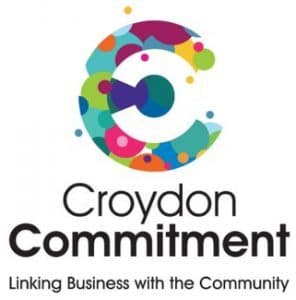5 minutes to ruin a reputation

Our thanks to Dominc Hullah from RiskEye for this article on how to protect your reputation, especially online.
Warren Buffett has long been an exponent of the view that in business your reputation is your best asset. Whilst largely intangible, your reputation is incredibly powerful in terms of future growth.
“It takes 20 years to build a reputation and 5 minutes to ruin it. If you think about that, you’ll do things differently” Warren Buffett
His company, Berkshire Hathaway, has such a solid reputation that entrepreneurs seek them out for investment - even if this means receiving less money than they could have from other investors. How else were they able to purchase a home furnishings company named RC Willey for $175 million despite RC Willey receiving offers of $200 million from elsewhere?
Damage to brand and reputation – the top ranked risk
Of course, this isn’t anything new. Aon’s 2017 Global Risk Management Survey of public and private companies of all sizes around the world has again identified damage to brand and reputation as the top-ranked of all 53 major areas of risk.
But still too few business owners are taking steps to protect themselves against the ever-increasing threat of what could be said about them online, or indeed what issues they could be inadvertently exposing themselves to.
“Risk comes from not knowing what you’re doing” Warren Buffett
Social media and reviews
The rise of social media has made it twice as difficult for companies to recover from an event that previously would have been quickly forgotten about (or could have been buried).
Most consumers will research a company online before using their services. Google reviews, TripAdvisor, Trustpilot are the new word of mouth. A one-star difference in your rating can be worth 5-9% in new business.
There are of course upsides to this - consumers are potentially less in the dark about who they choose to engage with and online reviews encourage businesses to improve customer service. However, not all reviews are genuine. Not all online complaints are factually correct. In some cases, not all reviewers are even real customers.
Without robust procedures in place, any business could suffer the consequences of negative online coverage - be it ‘fake news’ or an action of their own doing.
How can businesses protect themselves online?
Here are a few pointers:
1. Equip your staff
Ask yourself, are you confident that the staff member who is in charge of responding to reviews or social media queries is capable of dealing with negative or false comments and portraying your business online in the manner you would expect? What guidance, training and procedures do they need?
2. Pay attention to your online profile
Even if you don’t list your business on any websites, that doesn’t mean that people aren’t talking about you online. Take time to read and respond to customer feedback across all platforms.
Many businesses now dedicate resource to monitoring what is being said about them online - either through employees a sophisticated tracking software such as RiskEye, or a combination of the two.
3. Have effective crisis management procedures in place
Having the knowledge of what to do or where to turn should a negative post crop up online could be the difference between a minor issue and a full-blown reputational crisis. Ensure you have expertise at hand to deal with this complex area.
To find out more
Of course, this is just the tip of the iceberg. Reputational risk can take many forms online but with robust procedures and systems mitigation is possible. For more information on what can be done to stay protected online (including a free audit of your business's current online profile) please feel free to email RiskEye or visit the RiskEye website.
To find out more
If you would like to find out more about how we can help develop your dream office space, give us a ring on 020 8405 0555 or send us a message.






